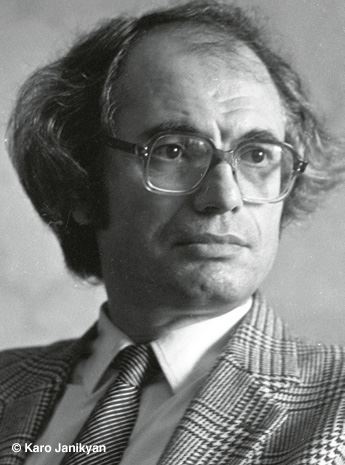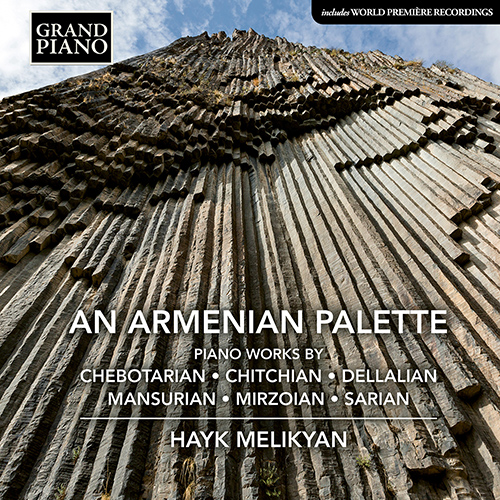
Tigran Yeghiayi Mansuryan (b.1939)
Tigran Mansurian was born on 27 January 1939, in Beirut, Lebanon. In 1947 he moved to Armenia with his family. He studied first at the Romanos Melikian State Music College (class of Eduard Bagdasarian), and in 1965 graduated from the Yerevan State Conservatory (class of Lazar Sarian). He taught modern music theory at the Conservatory from 1967 to 1986. He was the Rector of the Conservatory from 1992 to 1995. He is much lauded in his homeland and around the world, and his Monodia album was nominated for the 2005 GRAMMY Award for Best Instrumental Soloist(s) Performance (with Orchestra) and Best Classical Contemporary Composition.
During Mansurian’s prolific creative output from the 1960s to the early 1980s, he was considered a representative of the non-conformist direction in Soviet music, along with Denisov, Gubaidulina, Schnittke, Silvestrov, Pärt, and many others. For many Armenian composers of the 20th century, Mansurian’s ‘silent’ music was a fresh and innovative direction that strayed from the influence of Khachaturian’s ‘supra-emotional and extrovert manner’. In his youth, Mansurian tried his hand at twelve-tone technique and pointillism, which were popular at the time. These techniques are especially vivid in his Piano Sonata and the Three Pieces as well as the Interior string quartet. After 1980, his writing style changed to become more traditional, with a tendency to emphasise Armenian national elements and a nostalgic mood.
– Hayk Melikyan


 Grand Piano has gained a reputation for producing high quality recordings of rare keyboard gems. Dedicated to the exploration of undiscovered piano repertoire, the label specialises in complete cycles of piano works by many lesser-known composers, whose output might otherwise have remained unknown and unrecorded.
Grand Piano has gained a reputation for producing high quality recordings of rare keyboard gems. Dedicated to the exploration of undiscovered piano repertoire, the label specialises in complete cycles of piano works by many lesser-known composers, whose output might otherwise have remained unknown and unrecorded.






